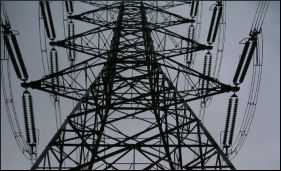Overseas participants about Indian power exchanges soon

Image collected
Indian power exchanges may soon host buyers and sellers from neighbouring countries as India looks to operationalise cross-border sale and purchase of electricity for which regulations were finalised this past year.
As per the plan, the country's major power exchange, India Strength Exchange (IEX), will get started hosting buyers and retailers from countries such as for example Nepal, Bhutan and Bangladesh to take part in vitality trading with both buy and sell calls initially.
Such participation from overseas entities on Indian exchanges wouldn't normally be direct but through any electricity trading licensee of India. Trading will come to be through bilateral arrangement between two countries, bidding way or through mutual agreements between entities.
"We've recently created a framework on how cross-border ability trading could be initiated on the exchange. The CERC has already come out with restrictions in this respect. Now we expect that this should begin within the next month or two," said Rohit Bajaj, mind (business advancement) of IEX.
While cross border transactions in TAM (Term Ahead Market) segment happens to be operational with India exporting electricity Bangladesh, the same is yet to pick up for short-term power purchase through exchanges. The CERC rules allow power producers to offer electricity directly to distribution entities in neighbouring countries through Indian ability exchanges.
Bajaj said the operationalisation of cross-border trade in the short-term market would provide Indian generators additional industry access on the market of their surplus electric power.
Both Nepal and Bangladesh import power and trade through exchanges here would be possible. Bhutan, which includes surplus power, could appear at offloading some of it through Indian exchanges in market segments nearer to its borders. This may also help India increase the share of renewable vitality in its generation blend.
India already has transmission links with Nepal, Bhutan and Bangladesh so power trading through exchanges could possibly be started with them quickly. The facility could possibly be extended to various other neighbouring marketplaces such as for example Myanmar and Sri Lanka once required infrastructure is created.
The power market has been going right through a downturn for some time now and the present Covid-19 crisis has further depressed power demand putting the country's generators to lower their plant load factor to check out opportunities to sell surplus power. Trade through exchanges would give them some outlet.
Experts explain that cross border transactions would only achieve success after the monopoly of status distribution entities is broken and a good multi-buyer-multi-seller industry is developed for trading for efficient price tag discovery.
Though right estimates are but to be produced, industry sources said that there may be demand for 300 to 400 MW from cross border trade in the spot market initially.
Currently, nearly 3,000 Mw of power is traded in the South Asia region among seven countries including India, Bhutan, Bangladesh, Nepal, Pakistan, Sri Lanka and Myanmar. India yearly imports about 1,200-1,500 MW ability from Bhutan and exports about 1,200 MW to Bangladesh, 500 MW to Nepal and 3 MW to Myanmar.
A captivating power exchange market with capability to trade in location market for buyers in domestic and overseas market would as well be very good news for vitality generators because they could tide over any circumstances of low demand in the domestic industry to transfer capacities overseas.
Source: http://www.smetimes.in
Previous Story
- India lags China found in South Asian trade...
- China’s response to India crackdown: Dragon eye Bangladesh,...
- Tipu for signing PTA with Nepal to boost...
- Bangladesh can export vegetables, fish to Nepal: PM...
- Bangladesh to sign Free of charge Trade Agreement...
- Economic growth robust despite challenges
- Bangladesh, Bhutan, India, Nepal MVA to benefit four...
- ADB lifts growth estimate to 8.1pc